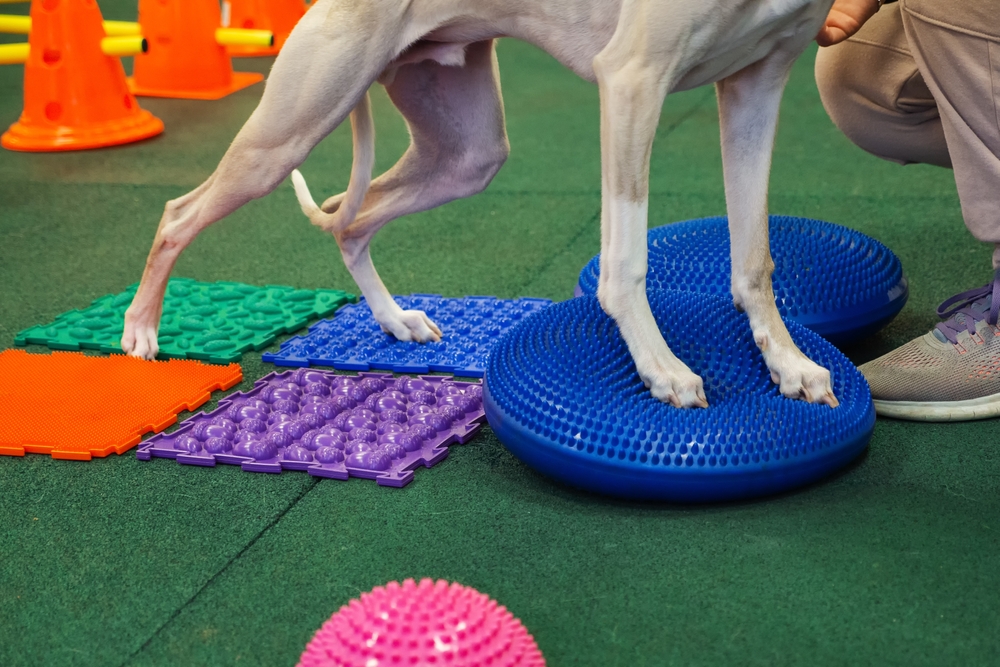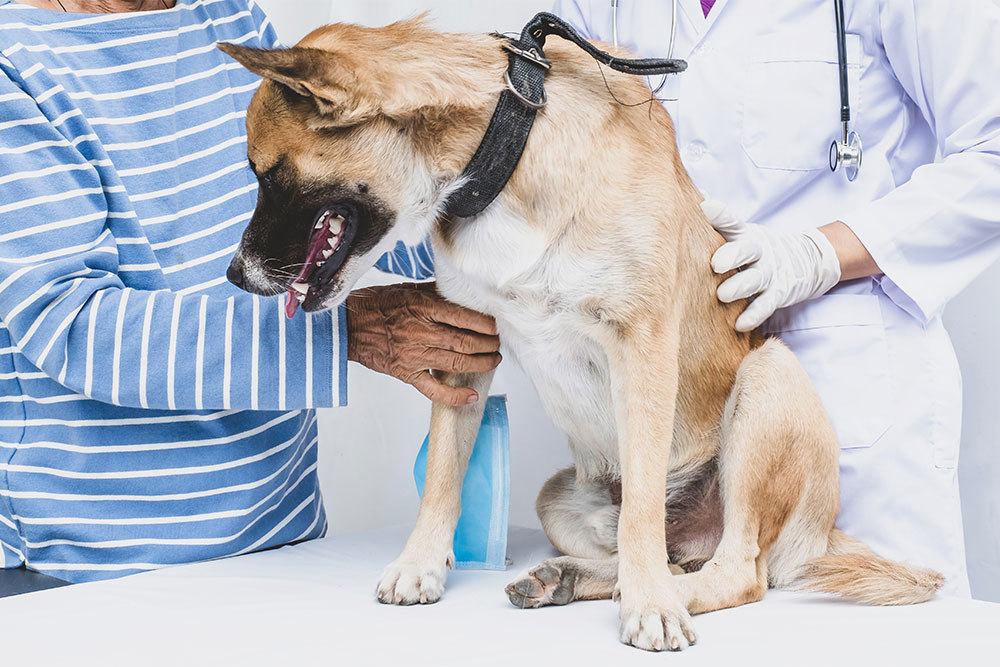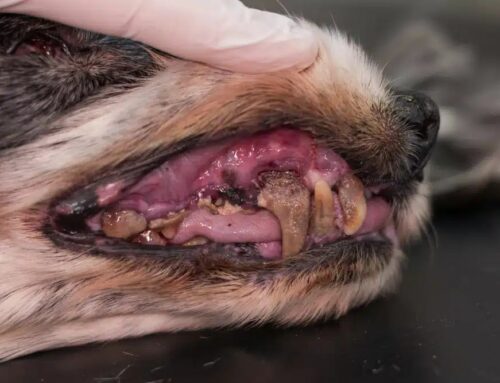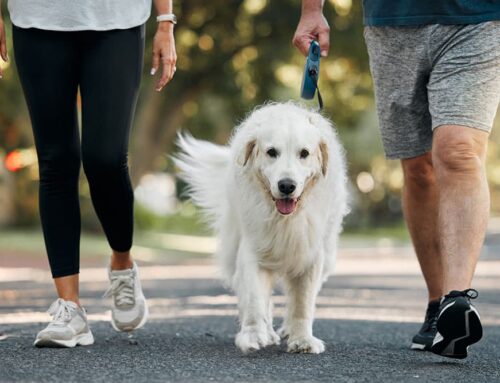From Stiff Joints to Strong Steps: Advanced Arthritis Care at Central Kentucky Veterinary Center
Arthritis is one of the most common conditions in aging pets, yet it often sneaks up on families. Studies estimate that up to 90% of senior dogs and cats suffer from some degree of joint disease, but because the changes appear gradually, pet owners may not realize what’s happening until their pet is struggling to climb stairs or refusing walks.
At Central Kentucky Veterinary Center in Georgetown, KY, our team provides advanced diagnostics, cutting-edge treatments, and comprehensive rehabilitation programs to help pets with arthritis live active, comfortable lives. Whether your pet is showing subtle stiffness or advanced mobility loss, early recognition and treatment can make a remarkable difference.
This guide will help you identify arthritis signs, learn about our innovative treatments like Librela and Solensia, and explore how our therapies such as acupuncture, stem cell therapy, and hydrotherapy support long-term mobility.
Recognizing the Early Signs of Arthritis
The first signs of arthritis are often easy to miss. Pets rarely cry out in pain; instead, they show subtle behavior changes.
Behavioral Clues
You may notice your dog or cat:
- Pausing before jumping onto furniture
- Reluctance to use stairs or climb into the car
- Reduced enthusiasm for play or exercise
- Sleeping more or seeking quiet hiding spots
Physical Changes
Look for:
- Stiffness after rest, especially in hips and elbows
- Muscle loss around affected joints
- A popping or crackling sensation during joint movement
- Reduced flexibility or difficulty rising
Something as common as your dog limping after activity or acting stiff after rising from a nap may be an early red flag. Cats can be even harder to evaluate. Feline arthritis and degenerative joint disease often shows up as missed jumps, reduced grooming, or litter box accidents.
How Central Kentucky Veterinary Center Diagnoses Arthritis
A thorough diagnosis is the foundation of treatment. As an AAHA-accredited hospital, we follow the highest standards for evaluation and care.
Comprehensive Exams
We start with hands-on assessments of range of motion, pain response, and muscle condition. Weight, activity level, and past injuries are all considered, since obesity and trauma accelerate joint damage.
Advanced Imaging and Testing
Our diagnostic tools allow for precise evaluation:
- Digital X-rays to reveal bone changes and joint degeneration
- Computed tomography (CT) for three-dimensional images in complex cases
- Blood work and preventive screening to detect other age-related problems and ensure your pet can handle pain medications
This comprehensive approach ensures that we address arthritis directly while also identifying any complicating factors such as metabolic disease or ligament injury.
Treatment Options for Arthritis
Once arthritis is confirmed, our goal is to reduce pain, slow disease progression, and help pets stay active for as long as possible. Because arthritis is a complex condition that affects joints, muscles, and even overall metabolism, treatment is most successful when it uses a multimodal approach: combining medications, targeted therapies, and rehabilitation strategies that complement one another.
Traditional Medications
Nonsteroidal anti-inflammatory drugs (NSAIDs) are a long-time cornerstone of arthritis management. They reduce inflammation, ease stiffness, and allow pets to stay active and engaged with daily life. At Central Kentucky Veterinary Center, we individualize every prescription to your pet’s weight, lifestyle, and overall health.
To ensure long-term safety and effectiveness, we perform baseline blood work and periodic rechecks, allowing us to fine-tune dosing as needed.
Medications are often paired with nutritional support to strengthen joint health. Supplements such as omega-3 fatty acids, glucosamine, and chondroitin can help reduce inflammation, support cartilage repair, and slow disease progression.
Biologic Therapies: Librela and Solensia
Recent advances in veterinary medicine have introduced injectable therapies that specifically target nerve growth factor (NGF), a key driver of arthritis pain. By blocking NGF, these biologics interrupt pain signaling at its source, reducing inflammation and improving comfort.
- Librela is formulated for dogs. Monthly injections often restore mobility, increase willingness to play and exercise, and improve overall quality of life.
- Solensia provides the same targeted relief for cats. Because it is given as a monthly injection, it avoids the struggle of daily pills while delivering consistent, long-lasting pain control.
These therapies are considered safe for long-term use and can be given alone or in combination with other treatments. They are especially valuable for pets who cannot tolerate NSAIDs, are hard to medicate, or need more comprehensive pain management.
Complementary and Advanced Therapies
Medications alone cannot address every aspect of arthritis. Supporting joint health with complementary therapies improves outcomes and reduces reliance on pharmaceuticals. At Central Kentucky Veterinary Center, we offer:
- Cold laser therapy to stimulate cellular repair, reduce inflammation, and promote circulation. Sessions are painless, and many pets relax and enjoy treatment.
- Acupuncture to release endorphins, reduce nerve sensitivity, and improve blood flow to damaged joints. It is particularly useful for pets who cannot tolerate higher doses of medication.
- Stem cell therapy, where a pet’s own cells are collected, processed, and reinjected to help repair cartilage damage and slow disease progression.
- Chiropractic adjustments to realign the musculoskeletal system, improve posture, and reduce stress on painful joints.
These options can be combined into individualized care plans, helping pets at every stage of arthritis maintain mobility and quality of life.
The Role of Rehabilitation in Arthritis Management
Rehabilitation at Central Kentucky Veterinary Center is one of the most effective ways to extend comfort and mobility for arthritic pets. Each program begins with a full assessment of gait, posture, range of motion, and muscle strength. From there, our team designs a plan tailored to your pet’s needs. Evidence shows that structured rehabilitation programs reduce pain, maintain muscle, and slow disease progression.
In-Clinic Therapies
Our rehab team uses a combination of treatments to support joint health and overall function:
- Therapeutic exercise such as balance work, coordination drills, and strengthening routines to stabilize joints
- Manual therapy including massage, stretching, and joint mobilization to ease stiffness and improve circulation
- Modalities like heat and cold therapy, electrical stimulation, and laser therapy to relieve inflammation and stimulate healing
- Hydrotherapy with underwater treadmill sessions, which combine buoyancy and resistance to build strength while reducing joint strain. Water therapy is proven to improve mobility and support weight management

At-Home Support
Between clinic visits, we provide owners with simple routines to reinforce progress- from gentle stretching to low-impact strengthening. These activities complement professional treatments, helping pets stay stronger, more flexible, and more comfortable day to day.
Take the First Step Toward Relief
Arthritis rarely exists in isolation. Senior pets often face additional health challenges, from endocrine disorders to heart disease. At Central Kentucky Veterinary Center, our comprehensive services include nutrition counseling, weight control, orthopedic surgery, cancer care, and pain management, ensuring every part of your pet’s health is addressed.
Arthritis is a lifelong condition, but it doesn’t have to steal your pet’s joy. With the right care plan, dogs and cats can continue to walk, play, and enjoy family life well into their senior years.
If your dog or cat is limping, slowing down, or avoiding play, don’t assume it’s just old age. Arthritis can be managed, but early intervention is key. Call (502) 863-0868, contact us online, or request an appointment today. With advanced diagnostics, rehab therapies, and personalized care, we can help your pet move comfortably for years to come.







Leave A Comment